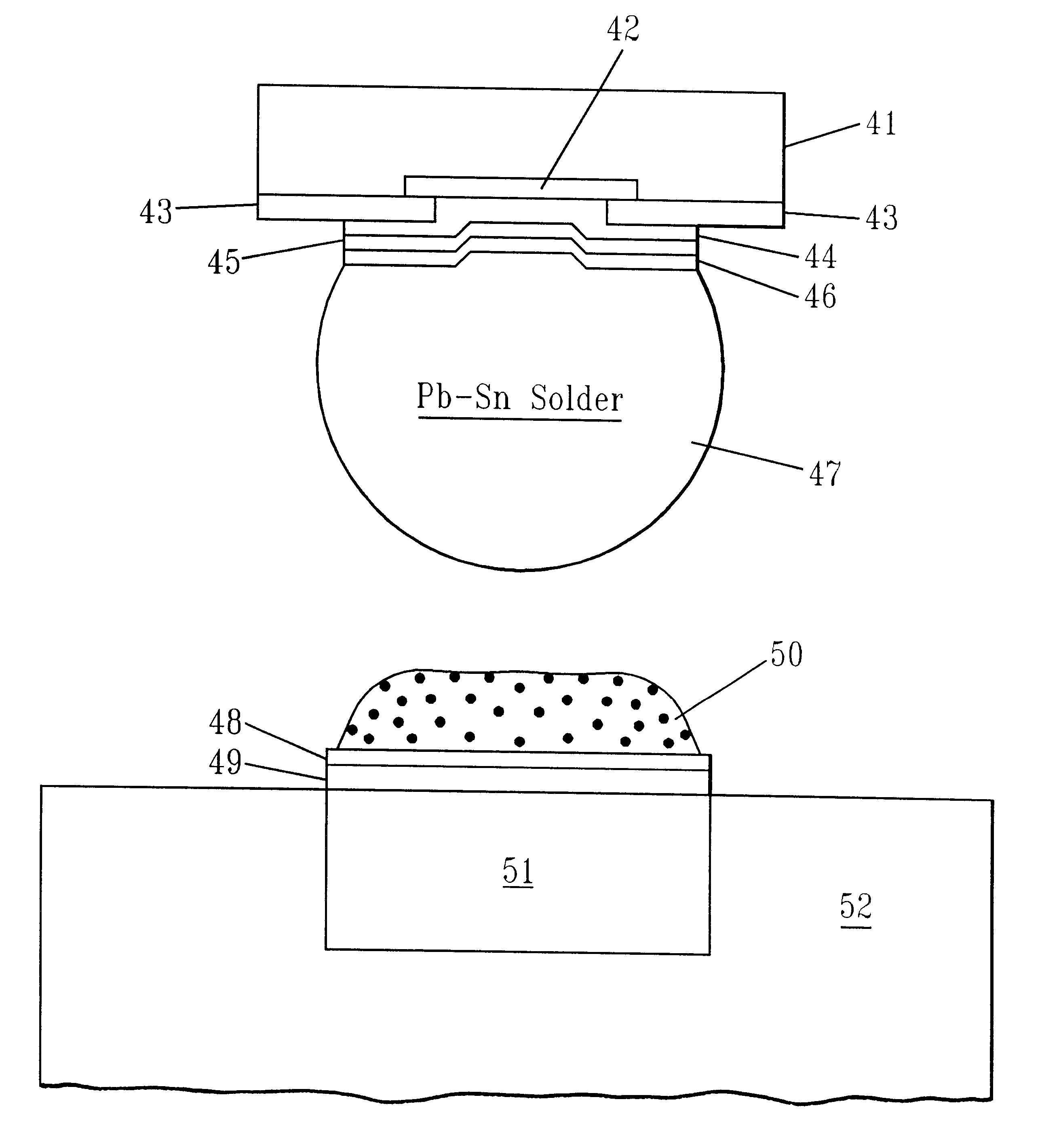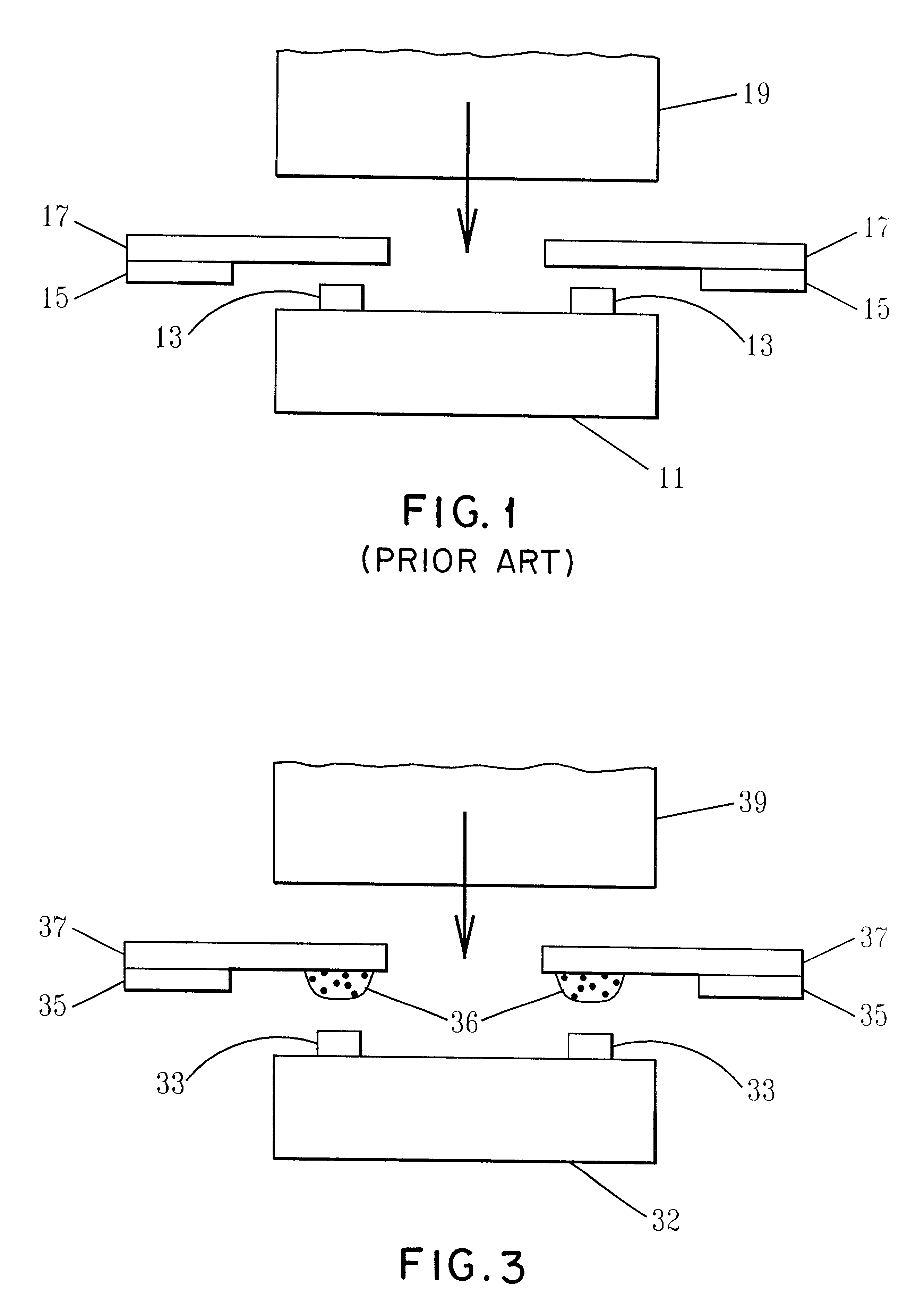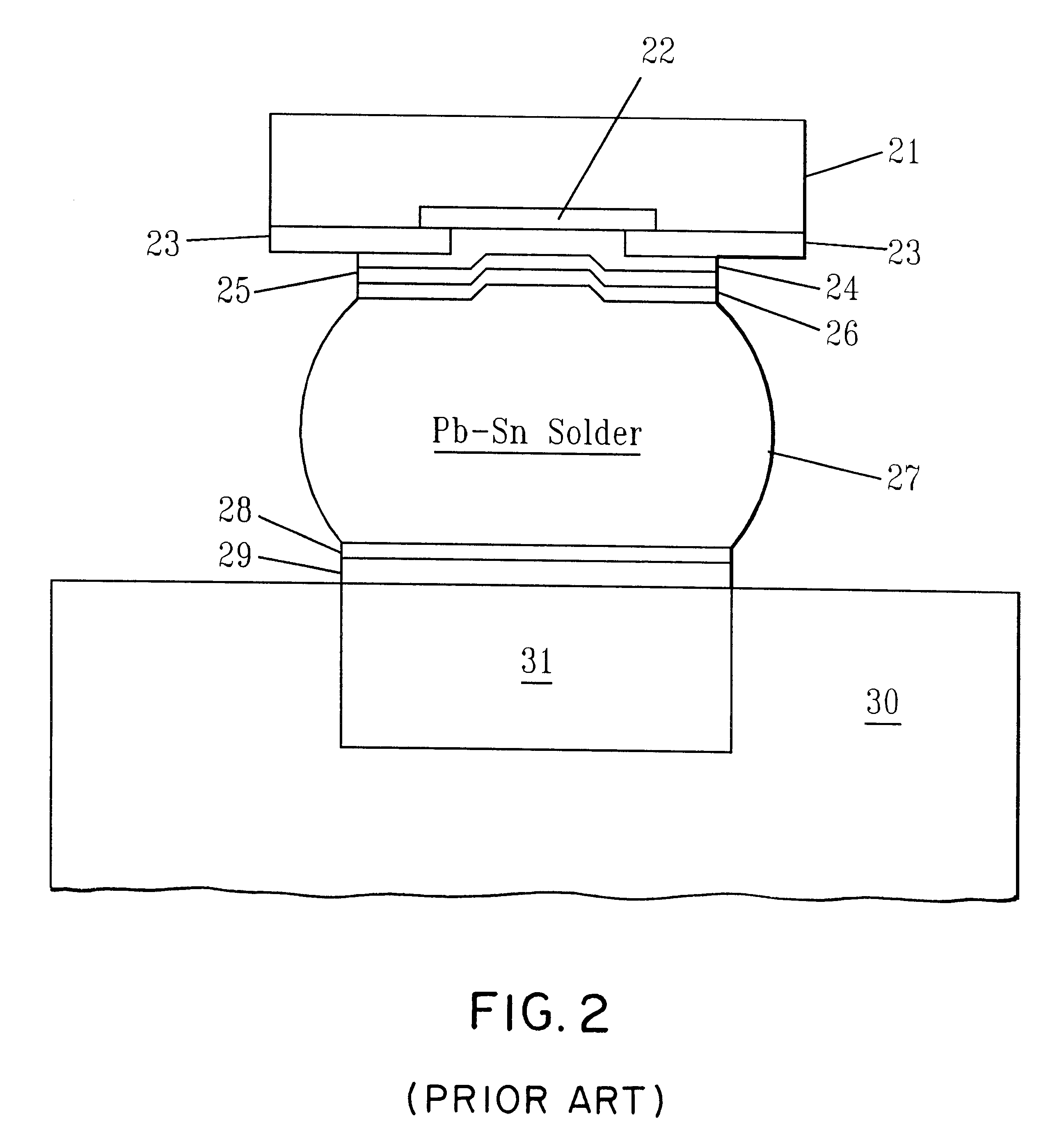Structure employing electrically conductive adhesives
a technology of electrically conductive adhesives and tab joints, applied in the direction of semiconductor/solid-state device details, soldering apparatus, manufacturing tools, etc., can solve the problems of thermal cycling, undesirable intermetallic phase formation, limited maximum number, etc., and achieve the effect of stable tab joint structure and longer fatigue li
- Summary
- Abstract
- Description
- Claims
- Application Information
AI Technical Summary
Benefits of technology
Problems solved by technology
Method used
Image
Examples
Embodiment Construction
In order to facilitate an understanding of the present invention, reference will be made to the figures.
According to an embodiment of the present invention, an example of a TAB package is schematically shown in FIG. 3, where the joining of TAB leads 37 to gold bumps 33 on an IC 32 is accomplished by using an electrically conductive adhesive 36. Examples of suitable electrically conductive paste adhesives 36 are disclosed in U.S. Ser. Nos. 08 / 641,406; 08 / 883,188; 60 / 052,172; 08 / 868,771 and 08 / 877,991, all of which are assigned to International Business Machines Corporation, the assignee of the present application, and entire disclosures of which are incorporated herein by reference.
These electrically conductive paste materials comprise conducting filler particles dispersed in a matrix of thermoplastic and / or thermoset polymer resin optionally with other ingredients. The electrically conducting adhesive preferably comprises:
a thermoplastic or thermoset polymer resin matrix,
no-clean so...
PUM
| Property | Measurement | Unit |
|---|---|---|
| diameter | aaaaa | aaaaa |
| thickness | aaaaa | aaaaa |
| bonding temperature | aaaaa | aaaaa |
Abstract
Description
Claims
Application Information
 Login to View More
Login to View More - R&D
- Intellectual Property
- Life Sciences
- Materials
- Tech Scout
- Unparalleled Data Quality
- Higher Quality Content
- 60% Fewer Hallucinations
Browse by: Latest US Patents, China's latest patents, Technical Efficacy Thesaurus, Application Domain, Technology Topic, Popular Technical Reports.
© 2025 PatSnap. All rights reserved.Legal|Privacy policy|Modern Slavery Act Transparency Statement|Sitemap|About US| Contact US: help@patsnap.com



